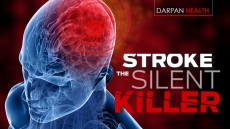Engaging in mentally stimulating activities during down time, such as reading, can be beneficial for brain health, according to an Australian research.
In a new study, researchers from the University of South Australia (UniSA) found that some sedentary, or sitting, activities are better for cognitive function than others.
The researchers assessed the 24-hour activity patterns of 397 adults aged 60 and above, and found that socially or mentally stimulating activities such as reading, playing musical instruments, crafting or talking to others are beneficial for memory and thinking abilities.
Watching television or playing video games was found to be detrimental.
The researchers said the findings could help reduce the risks of cognitive impairment, including from dementia.
"We already know that physical activity is a strong protector against dementia risk, and this should certainly be prioritised if you are trying to improve your brain health. But until now, we hadn't directly explored whether we can benefit our brain health by swapping one sedentary behavior for another," Xinhua news agency quoted Maddison Mellow, a co-author of the study from UniSA, as saying in the report.
She recommended breaking up time spent watching TV or gaming with five-minute bursts of physical activity or more cognitively-engaged seated activity.
The World Health Organization (WHO) estimates that over 55 million people globally have dementia, with nearly 10 million new cases diagnosed annually.
In Australia, about 411,100 people (or one in every 1000 people) are living with dementia. Nearly two-thirds are women. Globally, the World Health Organization estimates that more than 55 million people have dementia with nearly 10 million new cases each year.
And, while the 'move more, sit less' message certainly holds true for cardiometabolic and brain health, the research - conducted by a team of UniSA researchers including Mellow, Prof Dot Dumuid, Dr Alexandra Wade, Prof Tim Olds, Dr Ty Stanford, Prof Hannah Keage, and Associate Prof Ashleigh Smith; with researchers from the University of Leicester, and the University of Newcastle - shows that a more nuanced approach is needed when it comes to thinking about the link between sedentary behaviours and cognitive function.






